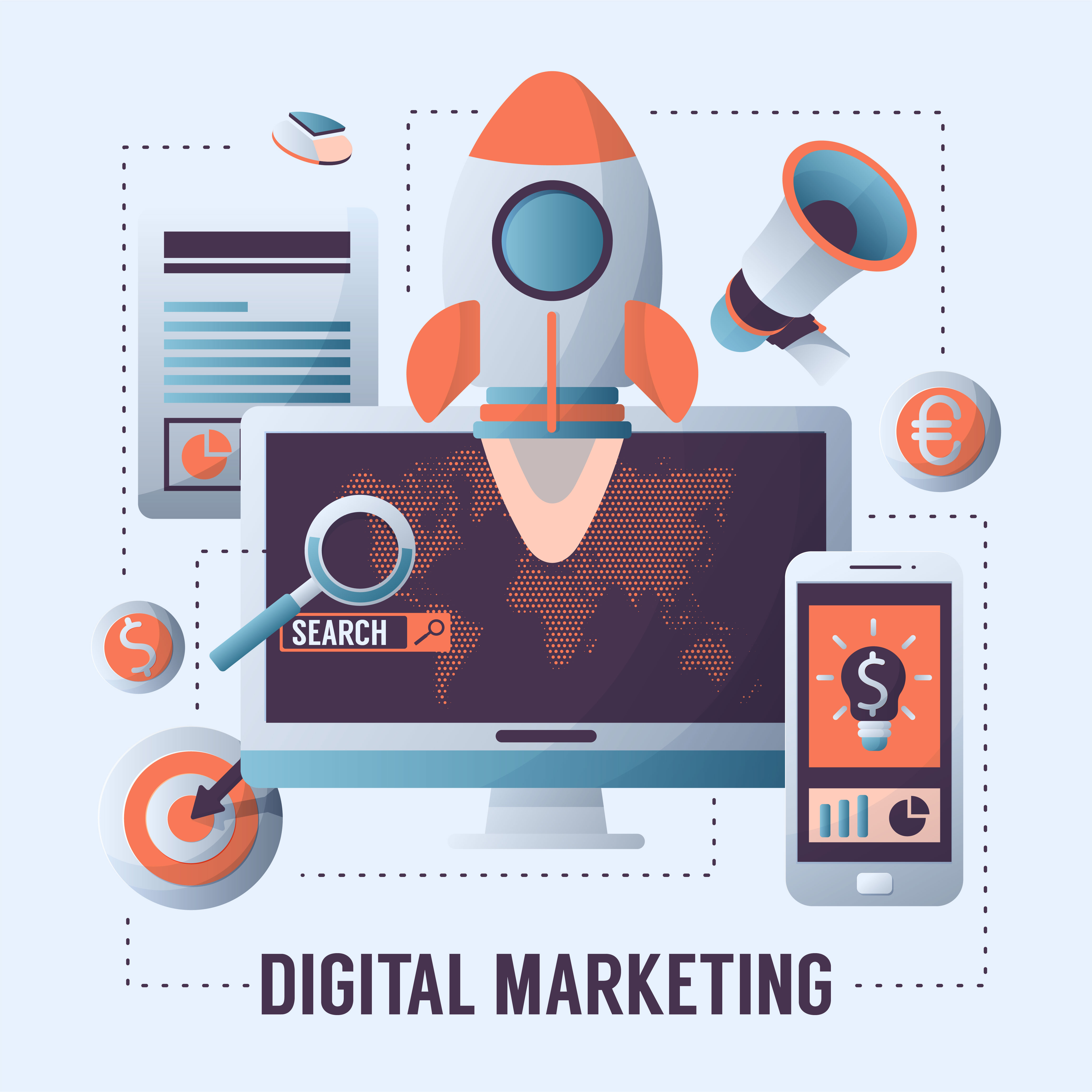Digital marketing has become the cornerstone of modern business strategies, and for good reason. With billions of people online, the potential to reach and engage with your target audience has never been greater. But navigating the digital marketing landscape without the right tools can feel like trying to build a house without a hammer. To help you thrive, we’ve rounded up a list of essential digital marketing tools every marketer should have in their toolkit. Whether you’re just starting out or are a seasoned pro, these tools can make your life easier, your campaigns more effective, and your ROI more impressive.
1. Analytics Tools: Understanding Your Data
Every successful marketer knows the importance of data. Without it, you’re flying blind. Analytics tools help you understand your audience, measure performance, and make data-driven decisions.
Google Analytics is a must-have. It offers insights into website traffic, user behavior, and conversions. For example, you can see which blog posts attract the most visitors or which pages lead to the highest bounce rates. Pair it with Google Tag Manager to streamline your tracking and better understand user interactions.
Another great option is Hotjar. This tool takes analytics a step further with heatmaps and session recordings, helping you see exactly how users interact with your site. Imagine discovering that your call-to-action button is being ignored because it’s below the fold—that’s actionable insight you can use to improve results.
2. SEO Tools: Boosting Your Visibility
Increasing organic traffic requires search engine optimization, or SEO. Without the right tools, keeping up with ever-changing algorithms and trends is tough.
Ahrefs and SEMrush are two powerhouse tools for keyword research, backlink analysis, and competitive insights. For instance, you can analyze your competitors’ websites to uncover their top-performing keywords and identify gaps in your own strategy.
For beginners or those on a budget, Ubersuggest is a fantastic alternative. It provides keyword ideas, domain analysis, and content suggestions at a fraction of the cost.
3. Social Media Management Tools: Staying on Top of Engagement
Taking care of several social media accounts might easily become too much to handle. Social media management tools help streamline the process, allowing you to schedule posts, monitor engagement, and analyze performance in one place.
Hootsuite and Buffer are popular choices for scheduling and publishing content. Both tools let you plan posts across multiple platforms, such as Instagram, Twitter, and LinkedIn, ensuring your brand remains consistent.
If you’re looking for detailed analytics and AI-driven recommendations, consider Sprout Social. It’s perfect for larger teams and offers in-depth reporting to help you refine your strategy. And if you’re focused on Instagram or TikTok, Later specializes in visual content scheduling and planning.
4. Email Marketing Tools: Building Lasting Connections
Email marketing remains one of the highest-ROI channels, with an average return of $36 for every $1 spent. To make the most of it, you need the right tools.
Mailchimp is a go-to option for many marketers, offering features like customizable templates, audience segmentation, and automation. Whether you’re running a welcome series or promoting a product launch, Mailchimp’s user-friendly platform makes it simple.
For more advanced needs, ActiveCampaign and HubSpot are excellent choices. Both platforms go beyond email, integrating CRM and automation features to help nurture leads and build relationships.
5. Content Creation Tools: Crafting Compelling Messages
Content is the backbone of digital marketing. Whether it’s blog posts, videos, or social media graphics, creating high-quality content is non-negotiable.
For writing, Grammarly ensures your copy is clear, error-free, and engaging. Pair it with Hemingway Editor to refine your content’s readability.
Visual content is equally important. Canva is a favorite for designing social media graphics, presentations, and infographics. Even if you’re not a professional designer, Canva’s intuitive drag-and-drop interface makes it easy to create stunning visuals.
For video editing, Adobe Premiere Pro and CapCut are standout tools. If you’re producing short-form content for platforms like TikTok or Instagram Reels, CapCut’s mobile-friendly features are particularly helpful.
6. Project Management Tools: Keeping Campaigns on Track
Marketing campaigns often involve multiple moving parts. Project management tools help keep everything organized and ensure deadlines are met.
Trello and Asana are excellent for task management. Use them to assign responsibilities, track progress, and collaborate with your team. For example, you could create a Trello board with lists for each stage of a campaign, from ideation to execution.
If you’re managing a larger team, Monday.com offers more robust features, including time tracking and integrations with other tools.
7. Advertising Tools: Maximizing Paid Campaigns
Paid advertising is a key component of many digital marketing strategies. The right tools can help you get the most out of your ad spend.
Google Ads is essential for search and display campaigns. Its detailed targeting options ensure your ads reach the right audience. For social media ads, platforms like Facebook Ads Manager and LinkedIn Campaign Manager offer similar precision targeting.
To optimize performance, consider tools like AdEspresso or WordStream. These platforms simplify campaign management and provide insights to improve ROI.
Tips for Choosing the Right Tools
With so many options, choosing the right tools can feel overwhelming. The following advice can help you make a decision:
- Define Your Goals: Are you focused on lead generation, brand awareness, or customer retention? Your goals will dictate which tools you need.
- Consider Your Budget: Many tools offer free versions or trials, so test them out before committing.
- Check Integrations: Ensure your tools can work together seamlessly to save time and reduce frustration.
Conclusion: Your Digital Marketing Toolbox Awaits
Digital marketing doesn’t have to be daunting. With the right tools, you can simplify your workflows, gain valuable insights, and achieve your goals more efficiently. Start by identifying your needs and exploring the options we’ve shared above. The sooner you invest in the right tools, the sooner you’ll see results.


Leave a Reply